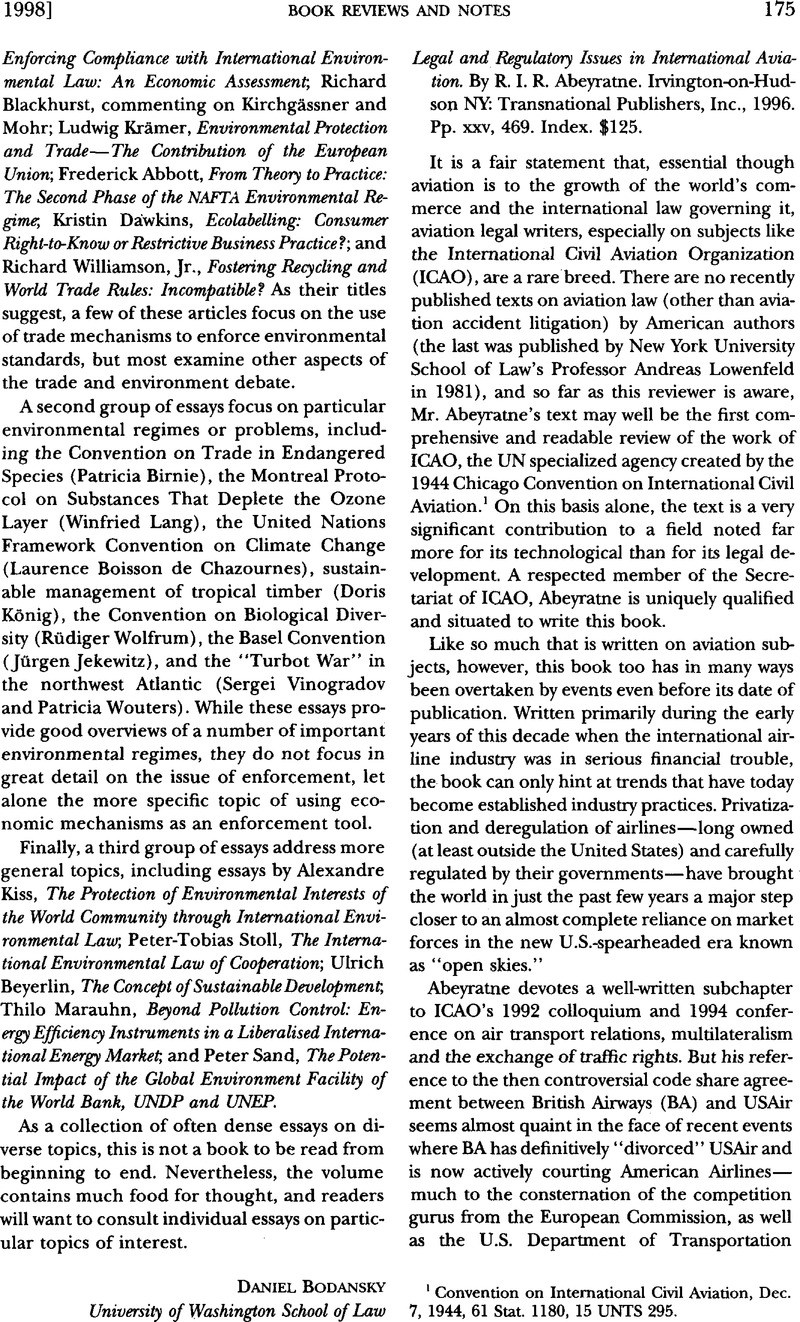No CrossRef data available.
Published online by Cambridge University Press: 27 February 2017

1 Convention on International Civil Aviation, Dec. 7, 1944, 61 Stat. 1180, 15 UNTS 295.
2 If the BA–AAL alliance were approved—without requiring the two participants to give up any of their highly prized slots at London’s Heathrow Airport—the two together would control upwards of 60% of the traffic on routes between the United Kingdom and the United States.
3 See Allan, I. Mendelsohn, The Warsaw Convention and Where We Are Today , 62 J. Air L. & Com. 1071 (1997)Google Scholar.
4 Carriers from Category 3-designated countries can operate to the United States only by way of wet-lease agreements with other authorized carriers. Carriers already operating from Category 2-designated countries can continue their current operations but cannot increase their fleets or flights. New carriers from Category 2 countries, like those from Category 3, can operate to the United States only by way of wet-lease agreements.
5 See Broderick Calls for Support for Foreign Safety Oversight Programs, Aviation Daily, Sept. 17, 1997, at 481; U.S. Officials Praise ICAO Safety Actions, Aviation Daily, Nov. 14, 1997, at 275. As of October 1997, 14 nations were on the FAA’s Category 3 list, and 16 were on its Category 2 list.
6 Doug, Cameron, Safer Than Ever , Airline Bus., Oct. 1997, at 62 Google Scholar.
7 The European Union (EU) has also recently announced unilateral plans to regularly inspect non-EU aircraft operating to and from EU countries and to ground them if they seriously violate ICAO safety standards. EU Plans Tighter Reporting on Third Country Aircraft Safety, Aviation Daily, Nov. 5,1997, at 219. Much the same unilateralism has also become the trend in maritime law where port states, particularly in Western Europe, have become increasingly dissatisfied with the safety enforcement standards and oversight of flag states and have not hesitated to detain foreign flag vessels in ports until safety deficiencies are corrected. Twenty-five Foreign Flagged Ships Held in British Ports during July, J. Com., Aug. 29, 1997, at 2B.
8 Aviation Daily, Nov. 18, 1997, at 293. Brazil reportedly scaled back the increase to $24, $30 or $36, depending on the airport. Aviation Daily, Dec. 15, 1997, at 445.